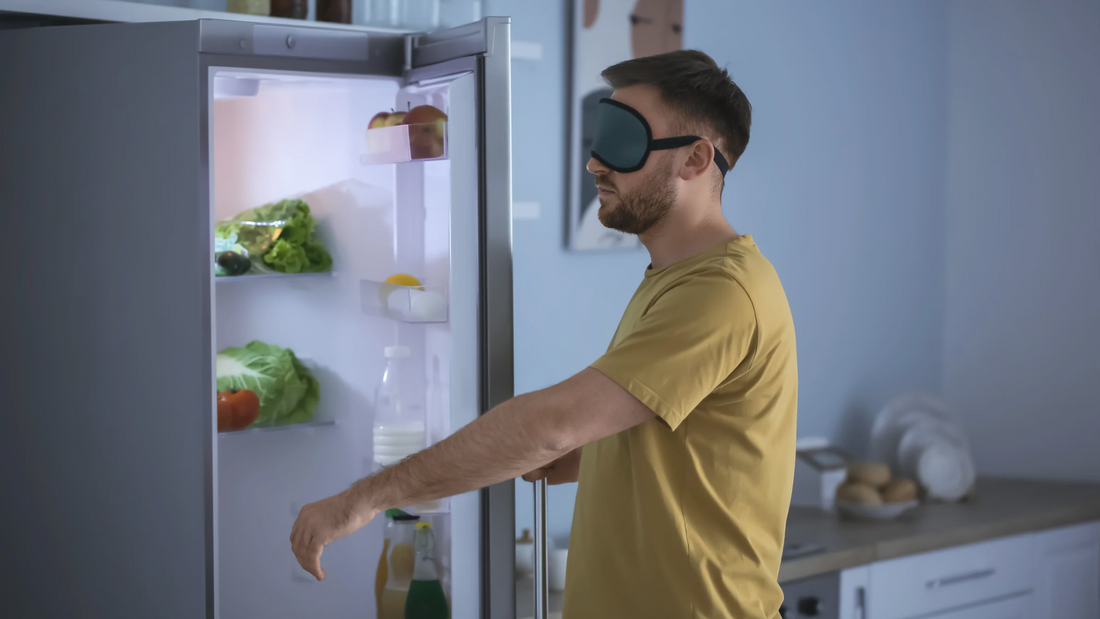Sleepwalking is when you get up and move around in your sleep without being fully conscious. It's not just walking around that causes sleepwalking problems, it can also be talking, eating, or even driving. Sleepwalking can happen at any age but usually starts when a person is a teenager or young adult. It can happen more often in the summer than in other months because the daylight hours are longer, and people don't get enough sleep. Sleepwalking has a lot of different possible causes. Sometimes no cause can be found. If someone in your family has sleepwalked, you may be more likely to do it too. Being stressed out can cause sleepwalking to happen more often or make it worse if it already happens in your family.
What is Sleepwalking?
Sleepwalking isn't dangerous in itself -- most people who do it don't hurt themselves or others -- but if someone starts walking around while asleep, it could be dangerous if they got hurt by getting hit by something or falling downstairs or off of furniture that's too high off the ground (like beds).
It's also important to know that sleepwalking isn't just getting up and walking around; it can also include talking out loud, having conversations with other people who aren't there, reacting emotionally as though something bad was happening (like screaming), acting very upset even though there isn't anything wrong, having trouble breathing due to hyperventilation, sweating heavily for no reason at all...and much more!
Sleepwalking is more common than you think - it affects an estimated 4% of the population and it's usually first seen when children are between 5-10 years old. Sleepwalkers tend to suffer from other sleep disorders such as narcolepsy (a condition where you fall asleep suddenly during the day) or nightmares.
What Causes Sleepwalking?
Sleepwalking has a lot of different possible causes. Sometimes no cause can be found. Some of the most common causes include:
- Stress, anxiety, or lack of sleep
- Medical conditions like sleep apnea and seizures that cause your body to jerk during sleep (called nocturnal myoclonus)
- Psychological disorders such as posttraumatic stress disorder (PTSD)
If someone in your family has sleepwalked, you may be more likely to do it too. This is called familial sleepwalking.
Familial sleepwalking can occur when there is a genetic predisposition to the disorder and one or both parents have a history of the condition. In these cases, children have an increased chance of inheriting the gene responsible for causing familial nocturnal wandering and developing symptoms themselves as they age.
Sleepwalking factors.
Stress is a major factor in sleepwalking. If you're under a lot of stress, your body might be more likely to have sleepwalking episodes. For example, if you've recently started a new job or moved into a new home and are having trouble adjusting to these changes, this could lead to an increase in sleepwalking episodes.
If your family members suffer from sleepwalking as well, then their habits may rub off on you--even if they don't live with you anymore! When we spend time around people who share our habits and behaviors, they can influence us even when we aren't aware of it happening at first glance; however, over time these behaviors become second nature so much so that sometimes even our own actions seem foreign when looking back at them later down the road! This means that if someone close enough has experienced similar symptoms before then chances are good that person will continue doing so again sometime soon after encountering another person who suffers from similar problems.
Sleepwalking is common, but it can be dangerous. If you're worried about your sleepwalking, talk to your doctor or another health professional who can help figure out what's causing this problem.

